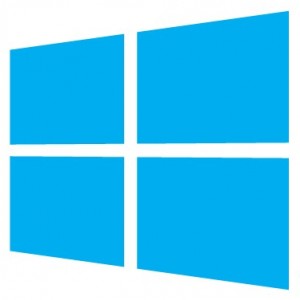

Nvidia and Asus are the latest tech vendors to add to Microsoft’s woes over its struggling Windows RT operating system.
Nvidia executives, who have seen revenues from the company’s Tegra chip business fall precipitously this year, are indirectly pointing to the poor sales of Windows RT devices as the key reason. At the same time, Asus executives told the Wall Street Journal that it will no longer make systems that run Windows RT, which is the version of the Windows 8 OS that is designed to run on devices powered by ARM-designed systems-on-a-chip (SoCs).
“It’s not only our opinion, the industry sentiment is also that Windows RT has not been successful,” Asus chief executive Jerry Shen told the Wall Street Journal on 9 August after the company announced its quarterly financial numbers.
However, sales and reviews of Windows RT have been poor, as were sales of the Surface RT. Microsoft announced in July that it was taking a $900 million (£582m) write-off on the Surface RT tablets, and officials also slashed prices on the device.
According to IDC Research Director Tom Mainelli, part of Microsoft’s problem is that while Windows 8 can run traditional x86 Windows software, Windows RT – because it is made for ARM SoCs – cannot.
“Microsoft’s decision to push two different tablet operating systems, Windows 8 and Windows RT, has yielded poor results in the market so far,” Mainelli said in a statement. “Consumers aren’t buying Windows RT’s value proposition, and long term, we think Microsoft and its partners would be better served by focusing their attention on improving Windows 8.”
That’s the approach Asus is taking. Shen said the company will focus on Windows 8 devices powered by Intel’s x86 chips, given the operating system’s backward compatibility with Microsoft applications. Asus took a write-down on its Windows RT tablets in the second quarter, though he declined to say how much it cost the company, according to the Wall Street Journal.
Nvidia executives indirectly pointed to the Windows RT platform for much of the problems surrounding Tegra sales. However, they aren’t ready to give up on the OS – President and chief executive Jen-Hsun Huang told Cnet that Nvidia and Microsoft are working together on the next generation of the Surface RT tablet, which is powered by Nvidia’s ARM-based Tegra SoC.
However, while not directly naming the operating system, Huang let it be known that it was a key culprit in the sharp decline in Tegra revenues in the second quarter and the expected poor sales for the entire year.
“So coming into the year we had pretty high expectations on one particular platform, and … it’s a very important platform that also derived from it a lot of design wins,” the chief executive told analysts and journalists on a conference call on 8 August to talk about quarterly financial numbers. “And because this particular platform just didn’t do as well as we, or frankly anybody in the industry, had hoped, we don’t expect as much returns on that investment as we originally hoped.”
Among those tablet design wins for Nvidia’s Tegra 3 chips were the Surface RT, the VivoTab RT from Asus and the Yoga 11 from Lenovo, all of which run Windows RT.
Second-quarter revenues for Nvidia’s Tegra business were down 71 percent over the same time last year. Karen Burns, Nvidia’s vice president and CFO, said the executives expected some drop as the company transitioned from Tegra 3 to Tegra 4, but that “nonetheless, we are disappointed with the size of the decline.”
Huang said that in the last fiscal year Tegra revenues were about $750 million, not just via tablets but also from smartphones to embedded systems. This year, even though the company expects a much better second half, revenues still will come in between $200 million to $300 million below that, he said.
Do you know all about 4G and the mobile future? Take our quiz.
Originally published on eWeek.
American space agency prepares for testing of Boeing's Starliner, to ensure it has two space…
As UK and Europe develop closer military ties, European Commission says it will invest €1.3…
Zuckerberg seeks to revive Facebook's original spirit, as Meta launches Facebook Friends tab, so users…
Notable development for Meta, after appeal against 2021 WhatsApp privacy fine is backed by advisor…
First sign of shake-up under new CEO Lip-Bu Tan? Three Intel board members confirm they…
Trump's nominee for SEC Chairman, Paul Atkins, has pledged a “rational, coherent, and principled approach”…